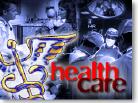|
Is medical inflation near?
|
 |
March 4, 1997: 7:20 p.m. ET
Experts: Medical industry likely to reverse recent trend, raise prices
From Correspondent Donald Van de Mark
|
NEW YORK (CNNfn) - Although it seems like a paradox, health care is becoming more efficient and more expensive at the same time.
On one hand, a variety of U.S. health-care providers are singing the praises to economies of scale as a merger wave hits the health-insurance and hospital industries.
But at the same time, experts say that while mergers are creating more-efficient companies with more purchasing clout, that won't be enough to hold down prices.
Some economists predict that U.S. medical costs, which rose 3 percent last year, will return to double-digit price increases by 1998.
Robert Eicher, health-care consultant at Foster Higgins, partly blames the drive to balance the U.S. federal budget, which includes billions of dollars spent for such health-insurance programs as Medicare and Medicaid.
"Medicare and Medicaid are still not adequately funded, (and) the government is looking to hold the line on gross dollars that they're paying on both those programs," Eicher said. "That means that additional money is going to have to come from the private sector."
Making matters worse, drug companies are also currently raising their prices.
Economists also expect hospitals and insurance companies to follow suit, after several years of holding the line in bids to gain market share.
Additionally, state governments are putting more regulations on managed-care companies, also raising costs.
Still, Gary Frazier, health-care analyst at Bear Stearns, said many believe mergers will ultimately drive costs down. (180K WAV) or (180K AIFF)
Yet experts also warn against too much consolidation.
They point out that some pockets of the country already have only one dominant insurance company or hospital, resulting in higher prices.
|
|
|
|
|
|
Foster Higgins
|
Note: Pages will open in a new browser window
External sites are not endorsed by CNNmoney
|
|
|
|
 |

|

